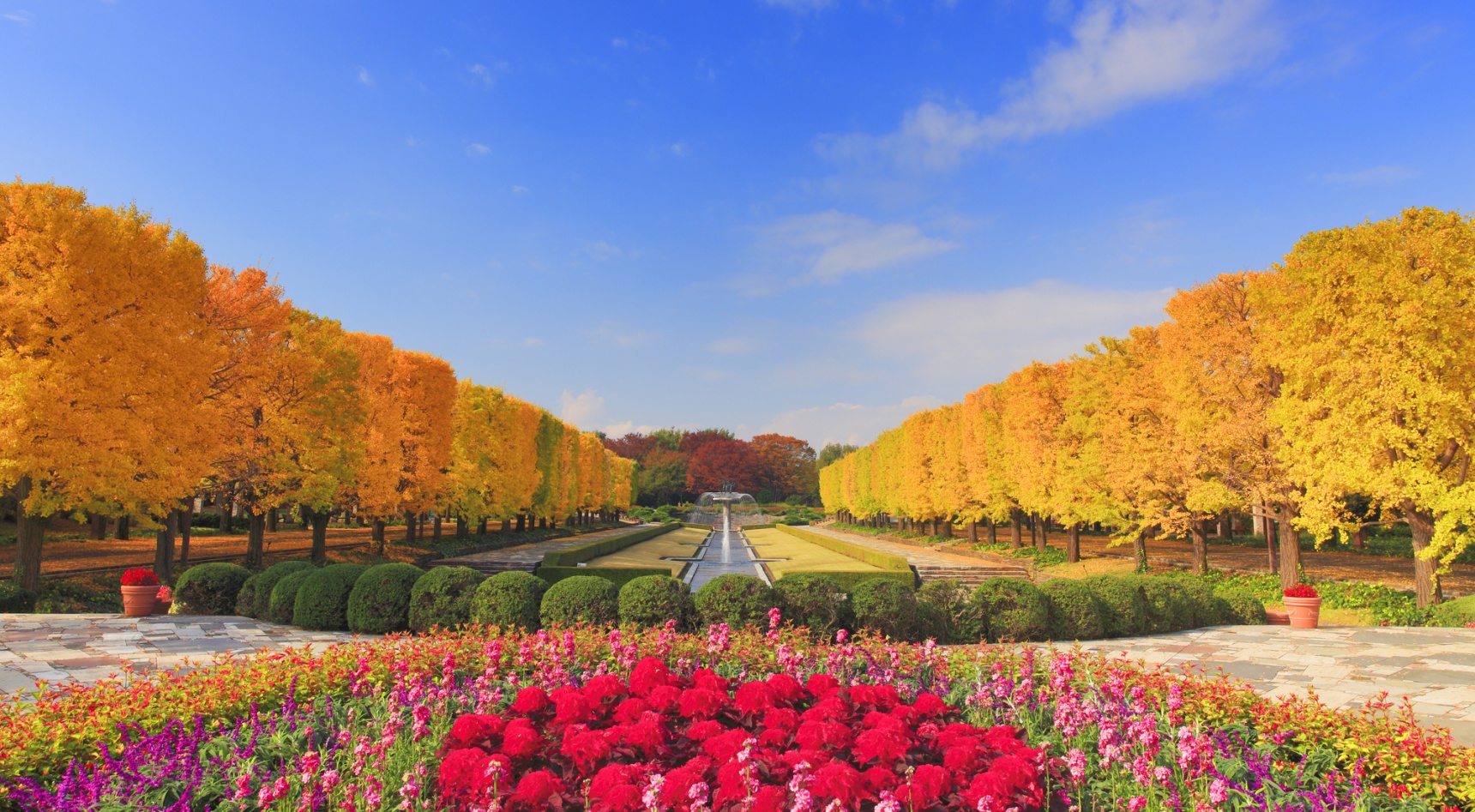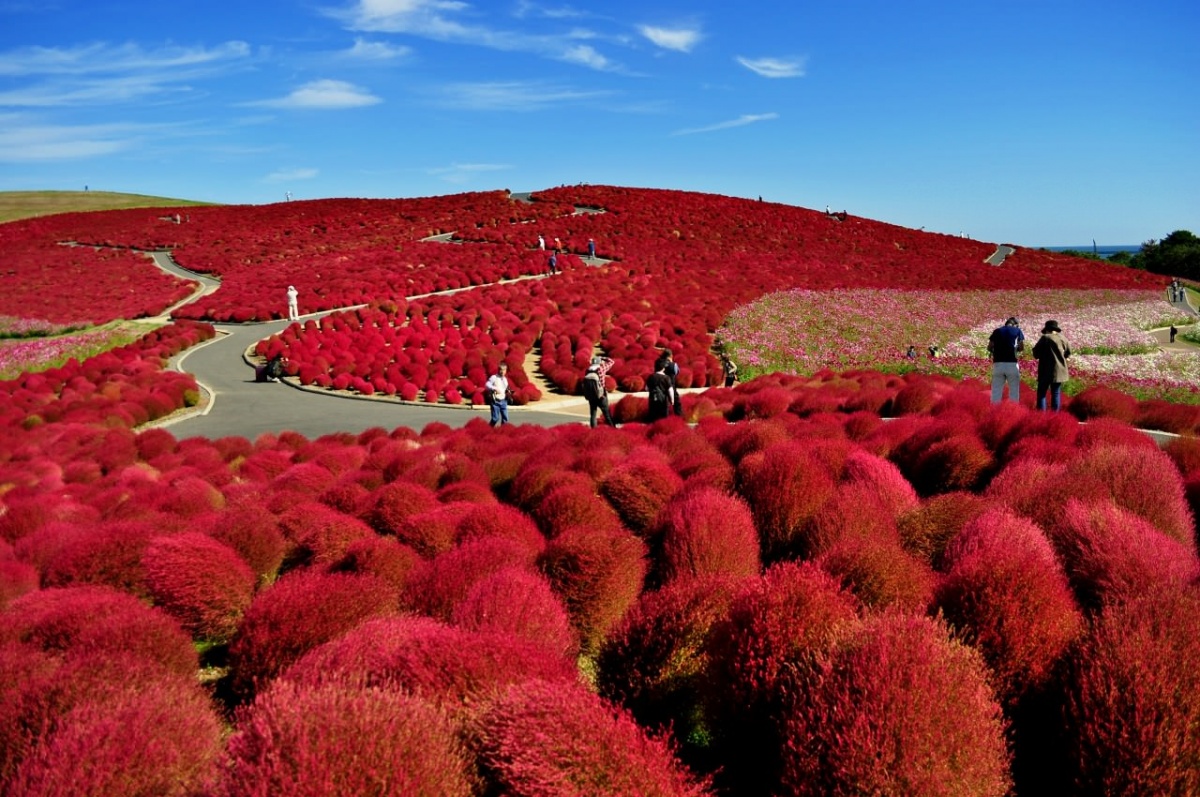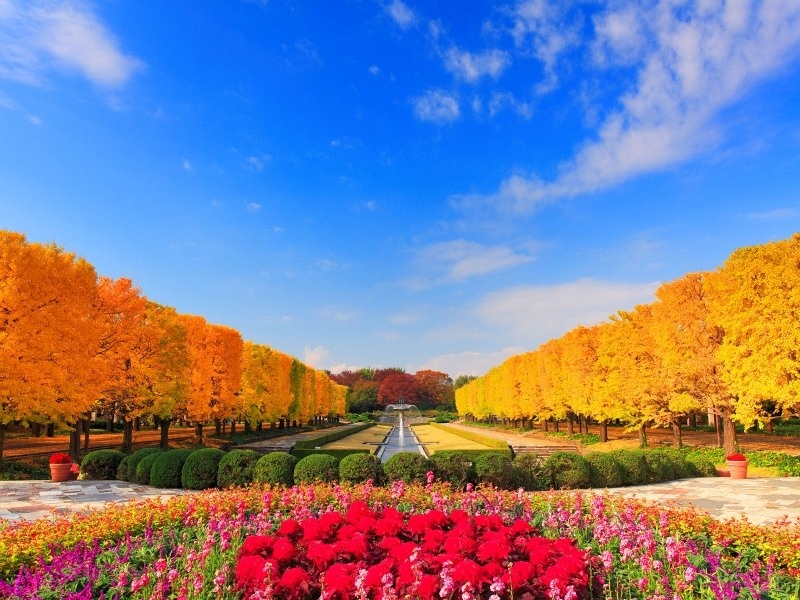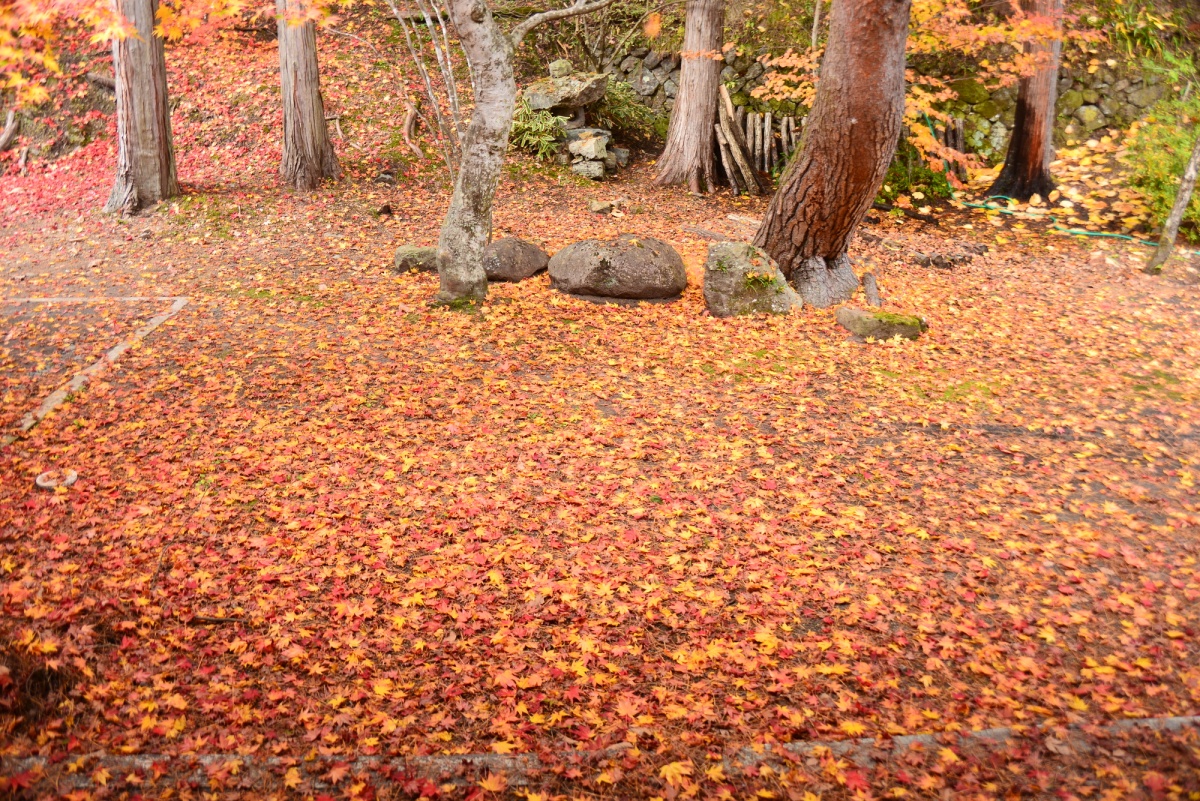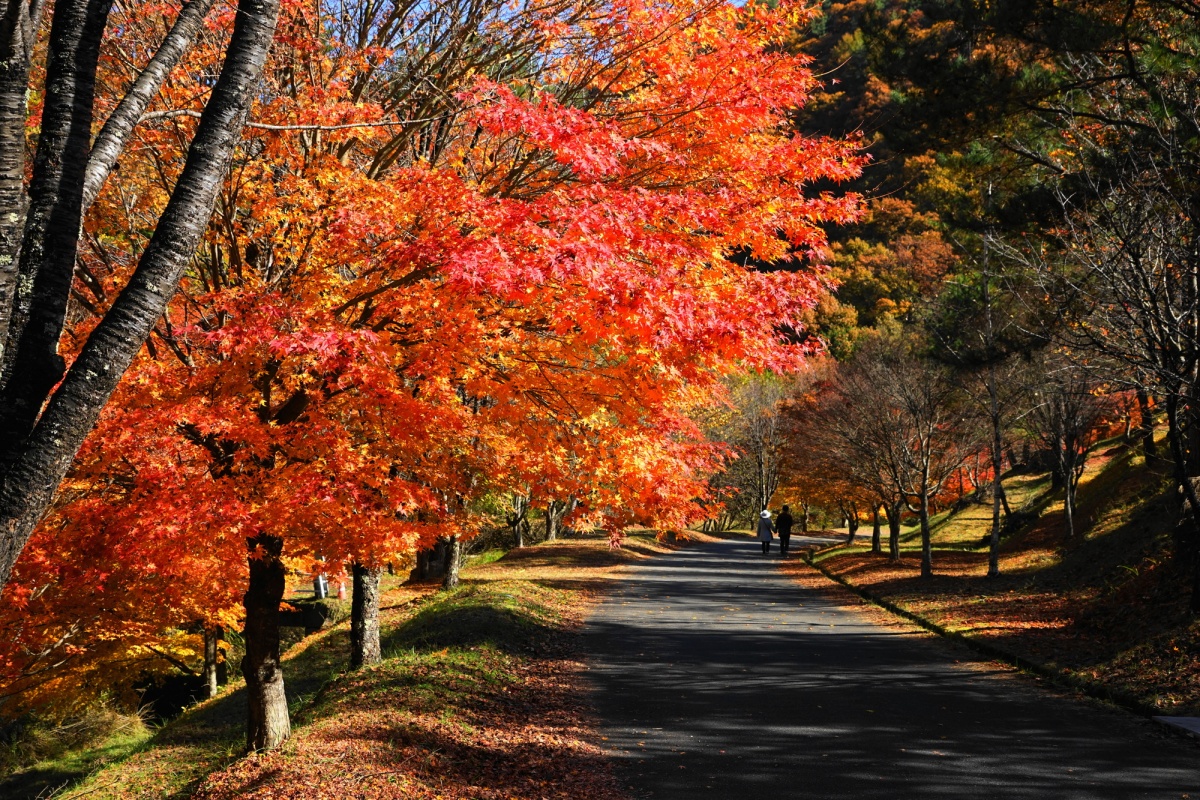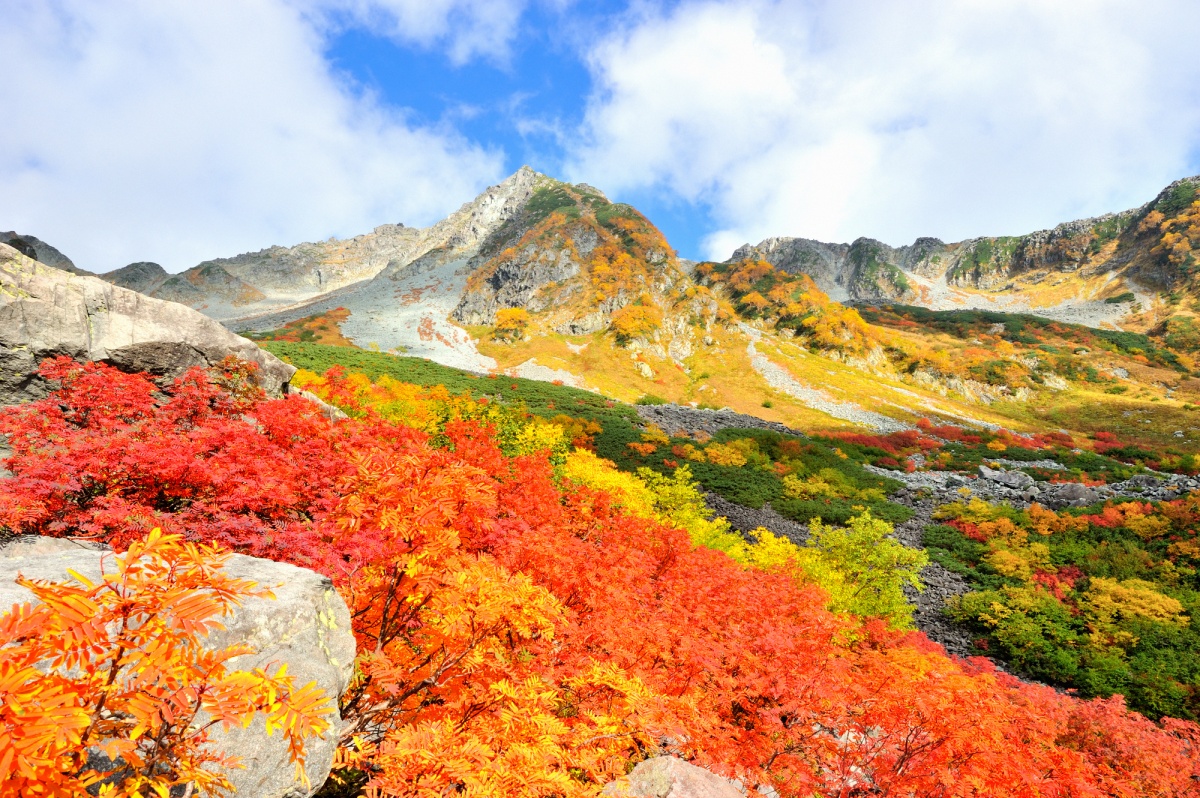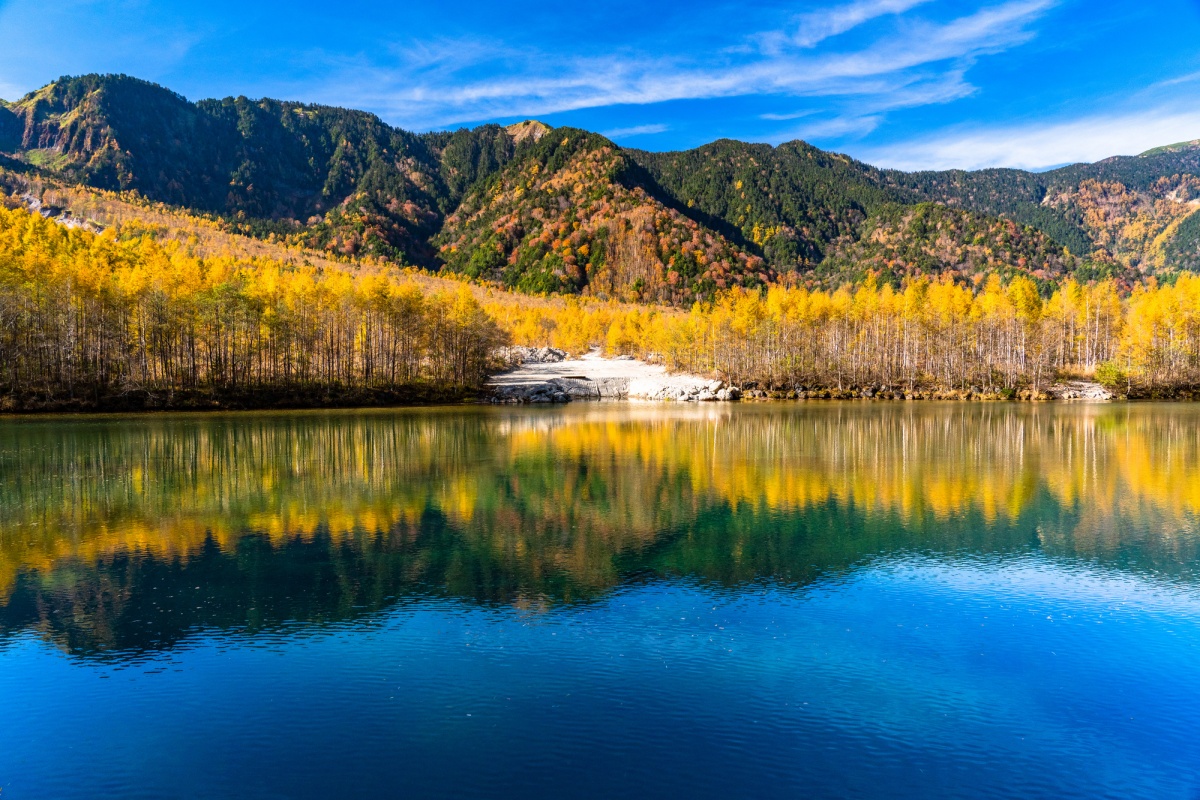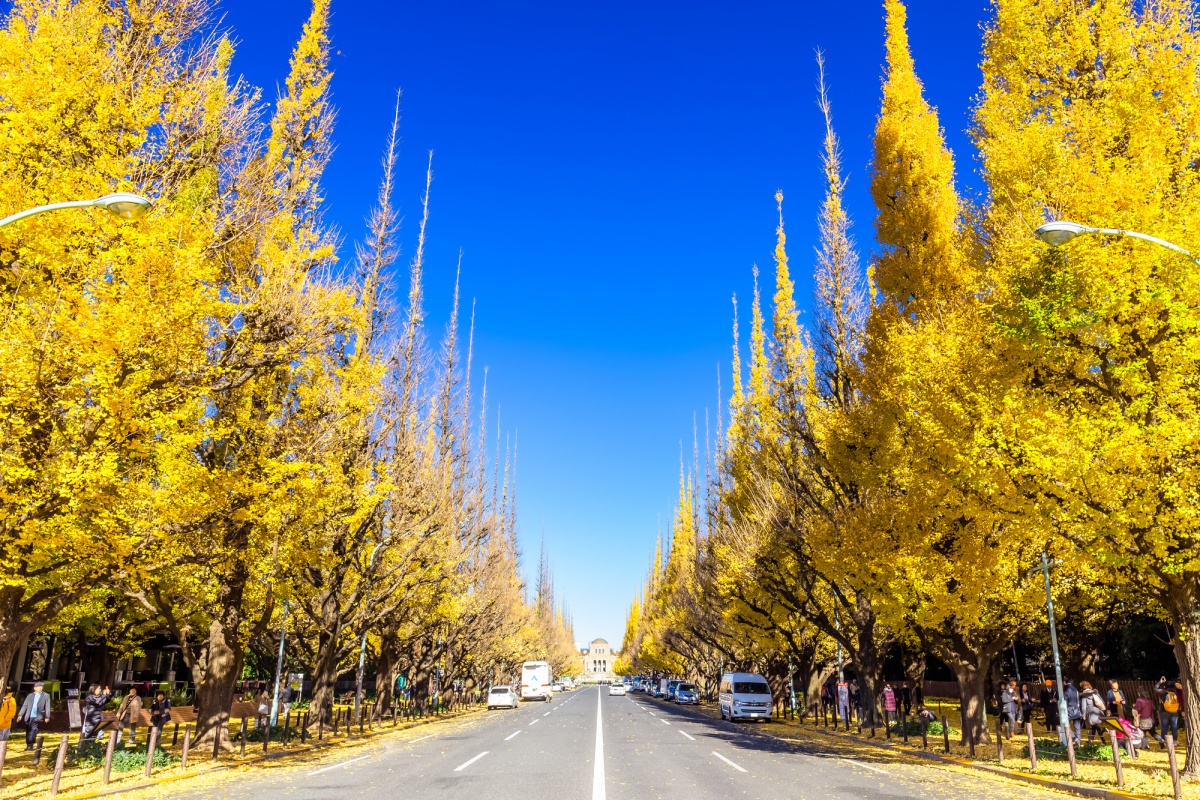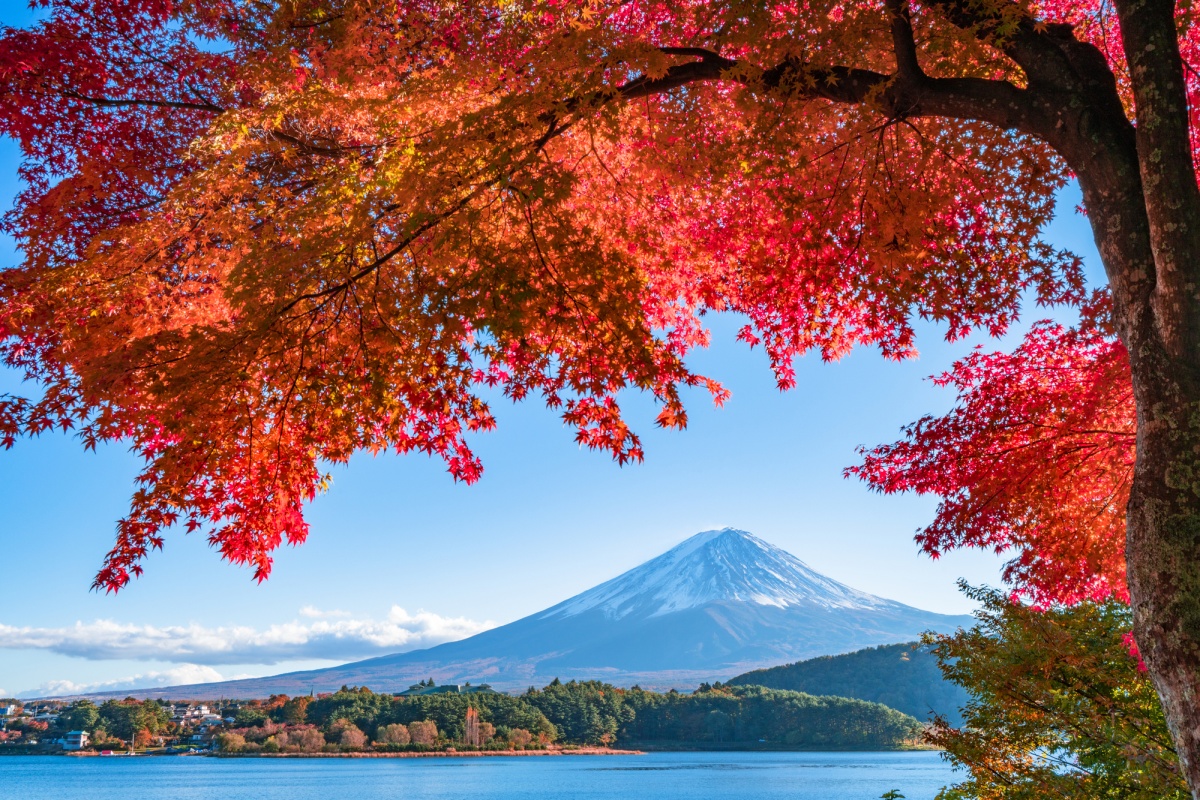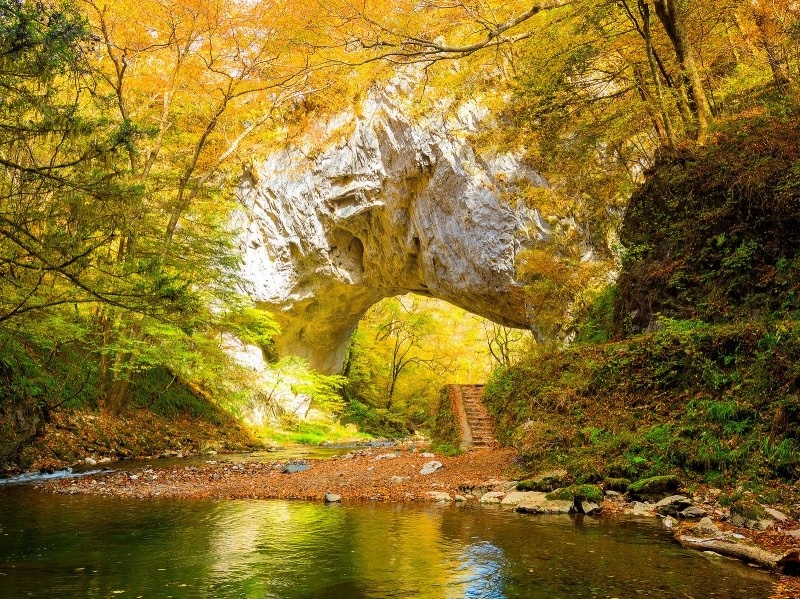The 12 Top Spots for Autumn Colors in Japan
There are many places to enjoy fall foliage in Japan, but we’ve combed through them all to show you the very best of the best. Here we present the autumn color hall of fame!
By Satoshi Fujita7. Hitachi Seaside Park (Ibaraki)
In the Miharashi Hill area, autumn turns the kochia (summer cypress) into a blanket of crimson, just as the picture shows. It’s not to be missed! This is the same Miharashi that, come Golden Week season in May, is covered with the largest field of nemophila (baby blue eyes) flowers in Japan—cloaked in blue, the hill is said to look strangely like the sea.
Fall Foliage Period: Early to late October
8. Showa Kinen Park (Tokyo)
Showa Kinen Park is one of the best-known spots for checking out gorgeous yellow fall leaves. The most picturesque part of the park may be the canal area shown in the photograph. The 200-meter-long (219-yard) canal, featuring five large and small fountains as well the stylized beauty of neatly arranged paving stones and greenery, may have you thinking you’ve left Japan and stumbled into a European garden!
Fall Foliage Period: Early to late November
11. Chofuku-ji Temple (Nagano)
Chofuku-ji is known for its great ginkgo tree, but it is also home to venerable Japanese maples over 100 years old. The contrast between the red and yellow foliage makes this a beautiful place to take in the fall colors. In fact, Ikeda Town is full of trees famous for their leaves, and in recent years its most famous "citizen" has become a maple that turns seven different colors in the fall: the aptly-named Seven-Colored Maple of the Omine Plateau. These are truly fall colors you can’t miss!
Fall Foliage Period: Late October to early November
12. Lake Momiji (Nagano)
Ten thousand Japanese maples are said to grow around Minowa Dam, lending their name to the man-made Lake Momiji (momiji is Japanese for maple). The blaze of color you’ll meet at the height of the fall foliage season will leave you breathless! This is one of the best-known spots in Japan, and if you’re fond of travel, you’ll want to take note of it.
Fall Foliage Period: Late October to early November
6. Mount Hotaka & Karasawa (Nagano)
The high altitudes of mountainous regions make for the most beautiful fall displays, and the top of the list of good altitudinous spots to visit is Karasawa. Tall-growing trees are less common at high altitudes, so the draw here isn’t a carpet of color, but rather the dramatic bursts of brightness from the rowan and birch growing against the steep mineral cliffs.
Fall Foliage Period: Late September to early October
5. Kamikochi & Taisho Pond (Nagano)
Kamikochi ranks with Oze and Tateyama among Japan’s best mountainous sightseeing locations, with stunningly beautiful scenery every way you look. Autumn foliage is just another layer of icing on the cake, so it’s safe to say you won’t find anywhere more must-see than this. Taisho Pond may be the grandest of all Kamikochi’s views, and is easily accessible by any bus route that goes by the Taisho-ike (Taisho Pond) bus stop: just step off the bus and there you are!
Fall Foliage Period: Mid to late October
3. Meiji Jingu Gaien (Tokyo)
The lines of stately ginkgos at Meiji Jingu Gaien are quite famous, and the garden takes its place alongside Rikugi-en Park as one of Tokyo’s gems for yellow fall leaves. Not only is the play of the yellows in the leaves lovely in its own right, the beautiful conical shapes add to the glamour. Of course, these mysterious shapes are not natural—they’re pruned once every four years, in the winter, to preserve their silhouettes.
Fall Foliage Period: Late November to early December
1. Lake Kawaguchi North Bank (Yamanashi)
This collaboration between Mount Fuji, a UNESCO World Heritage Site, and autumn foliage is spectacular. Of course, if Mount Fuji is involved the scenery is a must-see. But with the addition of views of the lovely Lake Kawaguchi, the beauty of this destination cannot be overstated. For lakeside leaf-viewing spots, Ubuyagasaki Peninsula and Nagasaki Park are particularly famous.
The nearby Momiji Kairo (“Maple Corridor”) and Momiji Tunnel are famous for long lines of brightly-colored trees. Momiji Kairo in particular has nighttime illumination of the trees, which is spectacular.
Fall Foliage Period: Early to mid November
9. Taishaku Valley (Hiroshima)
Taishaku Valley is the king of the hill of famous fall leaf-viewing spots in western Japan. Broadly divided into Kami- (“Upper-”) Taishaku, with a sequence of strangely-shaped rocks and boulders, and Shimo- (“Lower-”) Taishaku, where you can take a pleasure boat out onto the beautiful Lake Shinryu to take in the brilliant foliage, the gorge stretches between two municipalities. Perhaps the most famous feature of the area is Onbashi (seen in the photograh), Japan’s largest natural stone bridge, arcing 90 meters (295 ft) long and 40 meters (131 ft) above the river below. The bridge was carved by the river’s erosive power, just as it eventually ate through the bedrock beneath, where it now flows.
Fall Foliage Period: Late October to early November


